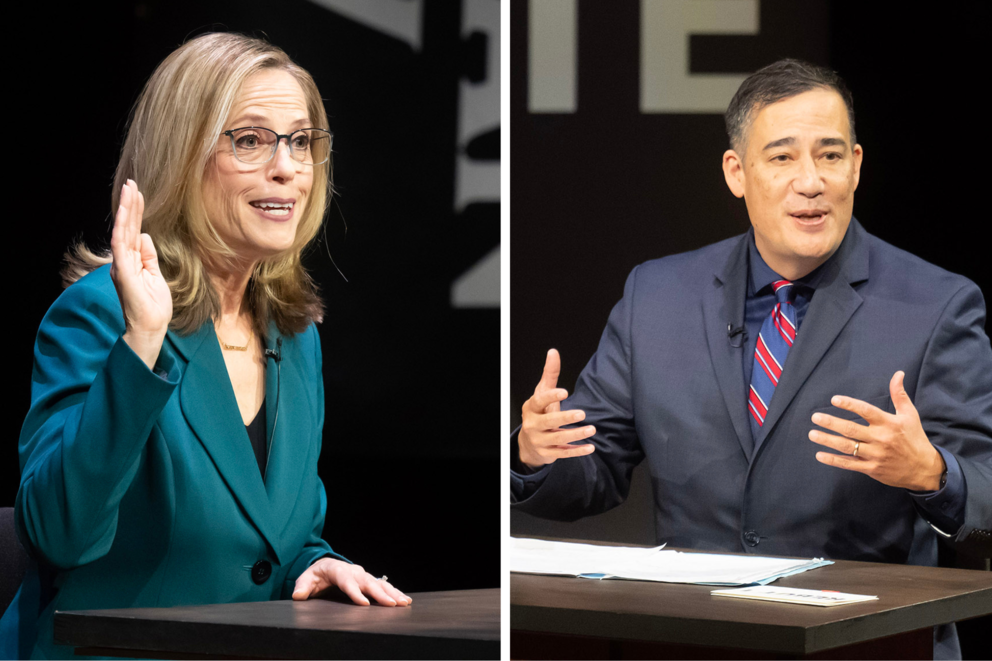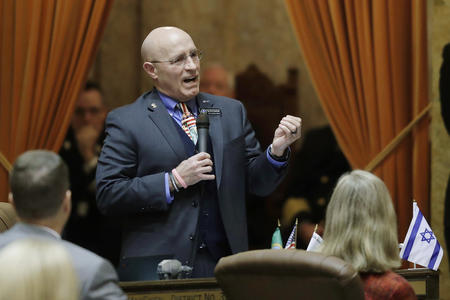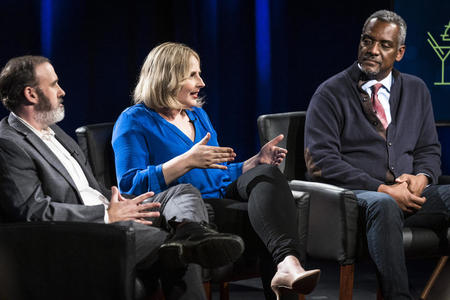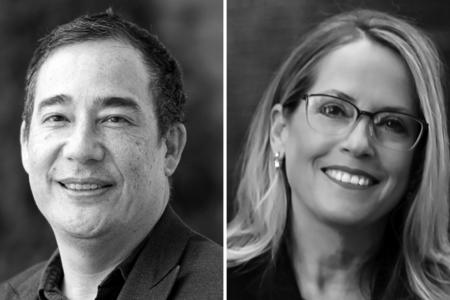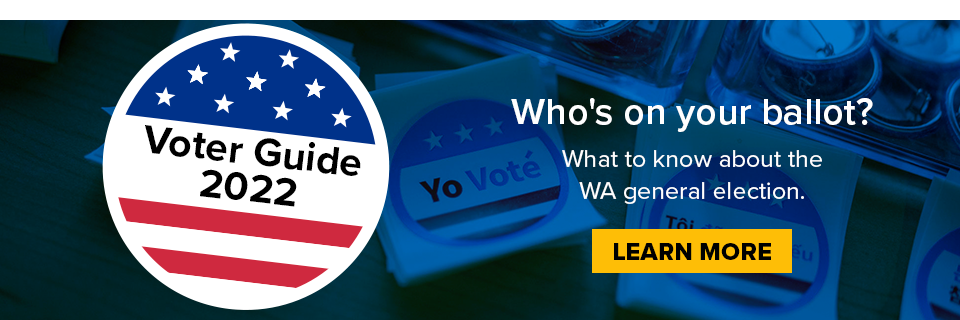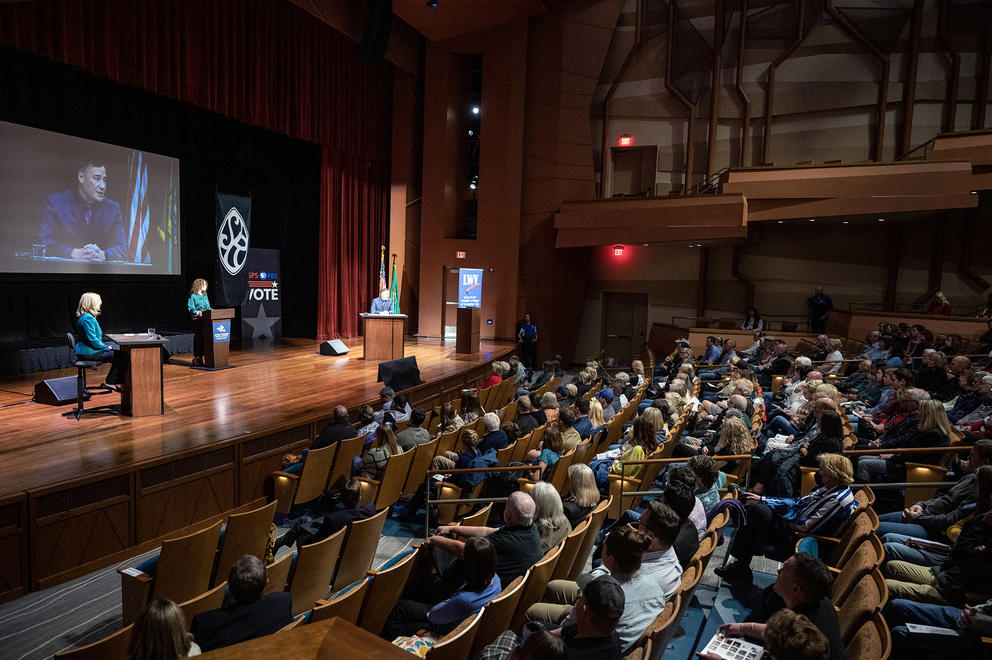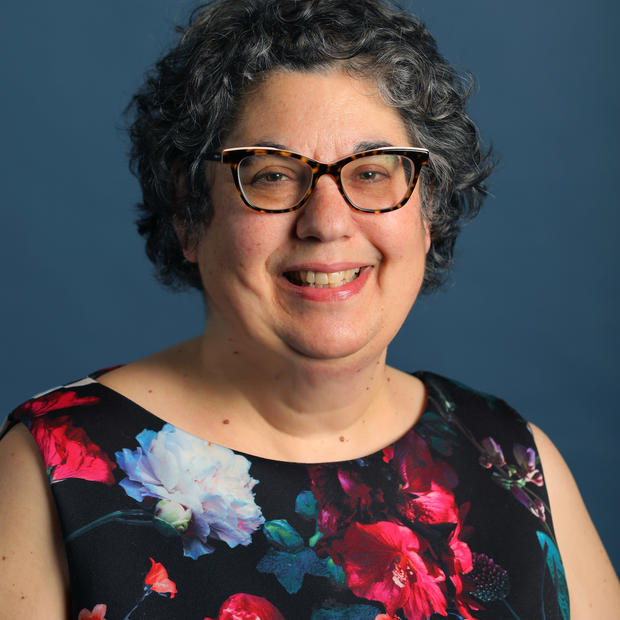The winner of this special election will complete the rest of Wyman’s elected term, with an election for a full four-year term in 2024.
Crosscut polling showed in September that voters have been slow to make up their minds on this race, in part because Hobbs, who is a Democrat, and Anderson, who is running as a nonpartisan, agree on many issues. The debate helped illustrate some of the differences between the two candidates, including their perspectives on the aftermath of the 2020 election. Here are some ways the debate highlighted their areas of disagreement:
- They disagree on ranked-choice voting (25th minute)
Anderson supports the idea of experimenting with ranked-choice voting at the local level and Hobbs opposes it. “It really isn’t a matter of if; it’s a matter of when,” she said. “I respect voters and I respect communities. … Local communities can be laboratories of innovation.”
Hobbs said he will honor the decisions of local communities, but he thinks ranked-choice voting is confusing and adds complexity to voting that may effectively disenfranchise people with disabilities or for whom English is not their first language.
- Computer problems in the charities division (33rd minute)
Anderson criticized Hobbs for the way his office dealt with a computer problem concerning the office’s charities division. She said the Secretary of State’s request for paper submissions of required yearly tax reports built a two-to-three-month backlog that is now causing problems for the charities in our state.
Hobbs said he inherited the problem and had two options: ask for paper submissions or do nothing and wait for the computer problem to be fixed. He expects the system will be back on line in November and his office will quickly get back up to speed
- Restoring voting rights for felons (58th minute)
While both opposed allowing prisoners who are still incarcerated to vote, Hobbs was against a bill that would make it easier for formerly incarcerated people to regain their right to vote and Anderson was in favor. She said making people wait to vote until they finish paying off fines they accrued before and during prison is similar to charging a poll tax.
- Increasing voter participation (36th minute)
In addition to voter outreach to underrepresented communities, Hobbs is working on a mobile game for young people to get them in the mindset for voting. He also said he believes the Legislature isn’t giving counties the money they need to promote voting and facilitate registration.
Anderson would focus on outreach to communities, have people talk about voting, campaign for civic engagement and provide grants to support innovative activities to encourage voting, similar to a grant project she is promoting in Pierce County.
- Eliminating odd-year voting (39th minute)
Anderson said skipping odd-year voting could make voter registration lists less accurate because the state would lose several opportunities to mail ballots and find out when people have moved. She also worries about counties cutting budgets to election systems and taking away the regular practice these systems need to keep their “wheels greased and pistons firing.”
Hobbs says he and Anderson are “on the same sheet of music on that.” But he also worries that eliminating odd-year elections would let big-year elections like for president and Congress overwhelm the small elections for city councils and drainage districts.
They agreed on other issues, including election privacy and security and allowing people to drop off friends and family members’ ballots at the ballot box.
The time stamps in this story have been changed to make it easier to find these segments because the recording of the debate starts 10 minutes earlier than the actual debate.
During the Secretary of State debates moderated by Spokesman-Review reporter Laurel Demkovich, nonpartisan Pierce County Auditor Julie Anderson debates incumbent Democrat Steve Hobbs, before a live audience at Gonzaga University’s Myrtle Woldson Performing Arts Center, Sunday, Oct. 23, 2022. The event was sponsored by the Spokesman-Review, League of Women Voters, KSPS-TV and the Washington Debate Coalition. (Colin Mulvany/The Spokesman-Review)

